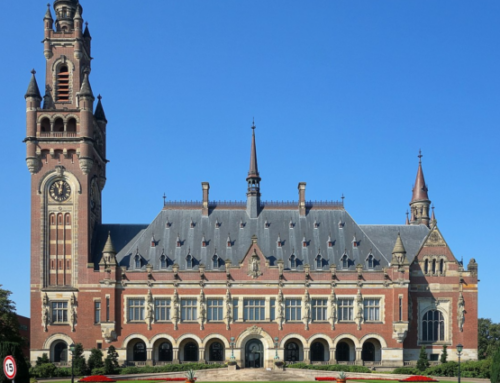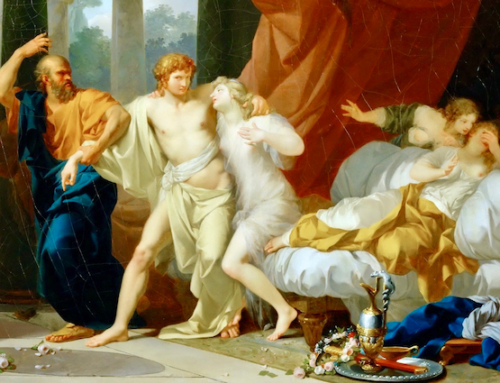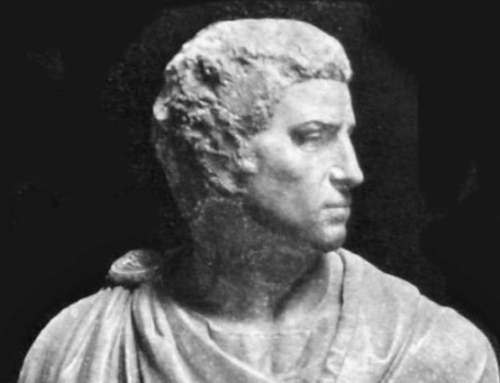A recent essay proposes Aristotle to have “opened a path” to today’s radical individualism and relativism. In order to evaluate this thesis, we must turn to the Great Tradition of the “perennial philosophy” and ask what the great philosophers taught about virtue, justice, friendship, and the nature of man.
 There is a story about H.L. Mencken, that has been much-repeated since even before his death. The story says that Mencken replied to every letter he received at the Baltimore Sun, including those from far-flung readers who knew him only via syndication. He signed each of these form letters, and each read, with impeccable logic, “Dear Sir or Madam: You may be right.” Not being the sharpest pencil in the box myself, I am hesitant to pen these remarks, but something requires to be said anent Kenneth Odom’s recent essay published in The Imaginative Conservative about Plato, Aristotle, and indeed philosophy in general, to say nothing of the philosophia perennis more particularly. I do not think he is right.
There is a story about H.L. Mencken, that has been much-repeated since even before his death. The story says that Mencken replied to every letter he received at the Baltimore Sun, including those from far-flung readers who knew him only via syndication. He signed each of these form letters, and each read, with impeccable logic, “Dear Sir or Madam: You may be right.” Not being the sharpest pencil in the box myself, I am hesitant to pen these remarks, but something requires to be said anent Kenneth Odom’s recent essay published in The Imaginative Conservative about Plato, Aristotle, and indeed philosophy in general, to say nothing of the philosophia perennis more particularly. I do not think he is right.
Mr. Odom proposes Aristotle to have “opened a path” to today’s radical individualism and relativism.
As best I can tell, classical Greek philosophy is the human wellspring of the Great Tradition of the “perennial philosophy.” This view is quite broadly noted, but it comes to mind quickly that I recently read this sort of reference in Karl Jaspers, as cited by Josef Pieper, and from a graduate student who helpfully suggested a citation from Alasdair MacIntyre. Naming names, the Great Tradition begins with Socrates, Plato, and Aristotle. It of course continues through St. Augustine and St. Thomas Aquinas, even to the Twenty-First century.
All these allowed, albeit in different ways, that the philosopher first makes inquiry into the world of experience. Thus of course, the question, “What is man?” is a focus of enquiry for each and all of these primary geniuses.
None of them understand “man’s existence,” metaphysically or morally, to be “defined by his relationships.” (See for example Republic VII.) This is emphatically true of Aristotle, who sees men as substances, with respect to which relations are accidental, even though they are proper. (See Metaphysics, On the Soul, and Categories)
Neither do Socrates, Plato, and Aristotle regard “the search for the ideal life” to be “the motive of the philosopher’s inquiry.” (See Metaphysics, I) Therefore, Socrates, Plato, and Aristotle provide no premises that imply virtue as enjoying “a right relationship with [man’s] world.” Despite the aporetic nature of his virtue-dialogues, Plato regards virtue as the mark first of a man, and then secondarily of his relationships. Aristotle in the main follows. For the nonce, I think it is not required to draw scholarly distinctions between their doctrines. Thomas Aquinas will later deepen this insight, explaining that act follows from the being of a thing. (Agere sequitur esse rerum.)
Aristotle understood virtue as the per se excellence (arête) of a man, acting according to his nature as the rational animal. Moreover, while human virtue is always rational, man, for Aristotle, assuredly does not “think his way to virtue”; rather, actions according to reason habituate human action to virtue.
It is true that justice is social; it is always towards another, but it remains a quality of the agent according to his nature, even while being relational. Just acts, in other words, are inward-facing as well as outward-facing, and each motion effects a change. Justice resides primarily and essentially in the soul.
In the Ethics, most importantly in Book I, chapter 7, Aristotle shows the principles that underlie his theory of justice. The nature of a thing, therefore of man, is the criterion of its good and of its doing well. In the end of the same book, especially in the treatment of friendship, and as this section seamlessly continues into the Politics, we find further exhibits. It is because human nature is social that friendship is a virtue, and so in the same way that the polis is a natural context for virtue, and allows and indeed promotes moral and intellectual prosperity.
In respect of the modern philosophers, radical individualism (alien to the ancients) is born precisely because Aristotle is rejected. The self-conscious and deliberate root impetus of the moderns is rebellion against the ancients. Machiavelli, Francis Bacon, Descartes, Hobbes, Locke, et alia take the ancients to be barren; all revolt against the Great Tradition. This is precisely why modernity is suffused ab ovo with radical anti-Aristotelian (and anti-Biblical) individualism. It is in no way agreement with or development from the principles of Aristotle, but only the denial of these, that has brought, as Patrick Deneen says, liberalism to its failure because of its success.
The Imaginative Conservative applies the principle of appreciation to the discussion of culture and politics—we approach dialogue with magnanimity rather than with mere civility. Will you help us remain a refreshing oasis in the increasingly contentious arena of modern discourse? Please consider donating now.
The featured image is “Aristotle” (1637) by Jusepe de Ribera (1591–1652) and is in the public domain, courtesy of Wikimedia Commons.







Helpful corrective, Dr. Rebard.
Dr. Rebard, I am a far less sharp pencil than you, but I had been gripped by a visceral need to respond to Kenneth Odom’s piece on Aristotle- On its face it struck me as just another, but subtler, rejection of Aristotelian principles. Radical individualism is a patently modern phenomena and it appeared that Odem’s assertions must have necessarily have been anachronistic interpretations of Aristotle, as he asserts “It is Aristotle’s thinking that grounds much of modern belief about virtue. Etc…” Aristotle’s thinking is not the source of modern thinking on virtue, that ought to be obvious to anyone seriously considering the important questions.
Perhaps the root cause of error in Mr. Odom’s assertions and the similar assertions of nearly all modern thinkers, flows out of evolutionary and gnostic theories (“A man, then, thinks and reasons his way to virtue.” Odom). There is a glaring inversion of the order of being and doing which shifted the focus from objective truth and reality to subjective self-reference. It strikes me that only one who is sawing off the branch on which he sits can say of Aristotle: “From a modern perspective, Aristotle’s reasoning about virtue, with its emphasis on man’s relationship to his own soul and man’s ability to perfect his own virtue, opened a path to relativism and radical individualism.” There is too much here to address and remediate, but Dr. Rebard, I am grateful for the brief corrective you gave! If a phrase captures the essence of Mr. Odom’s errors, it is “Agere sequitur esse rerum.” However, I suspect it is not that simple, modernity is complex and relies on complicating things beyond common sense.
Such is the deviation from the perennial philosophy and the revolt against the nature and intellect of man. Radical individualism and subjectivism cannot be traced back to Aristotle whose moderate realism is the substantial ground, not only of properly understood ethics, but of our certainty that truth is the “convergence of the mind and reality.” Mr. Odom left the reservation.
It is more correct to say that Aristotle influenced Karl Marx’s thinking than he did John Locke’s. I’m referring specifically to the Four Causes and the difference between unlimited accumulation by individuals vs the economics of a household.